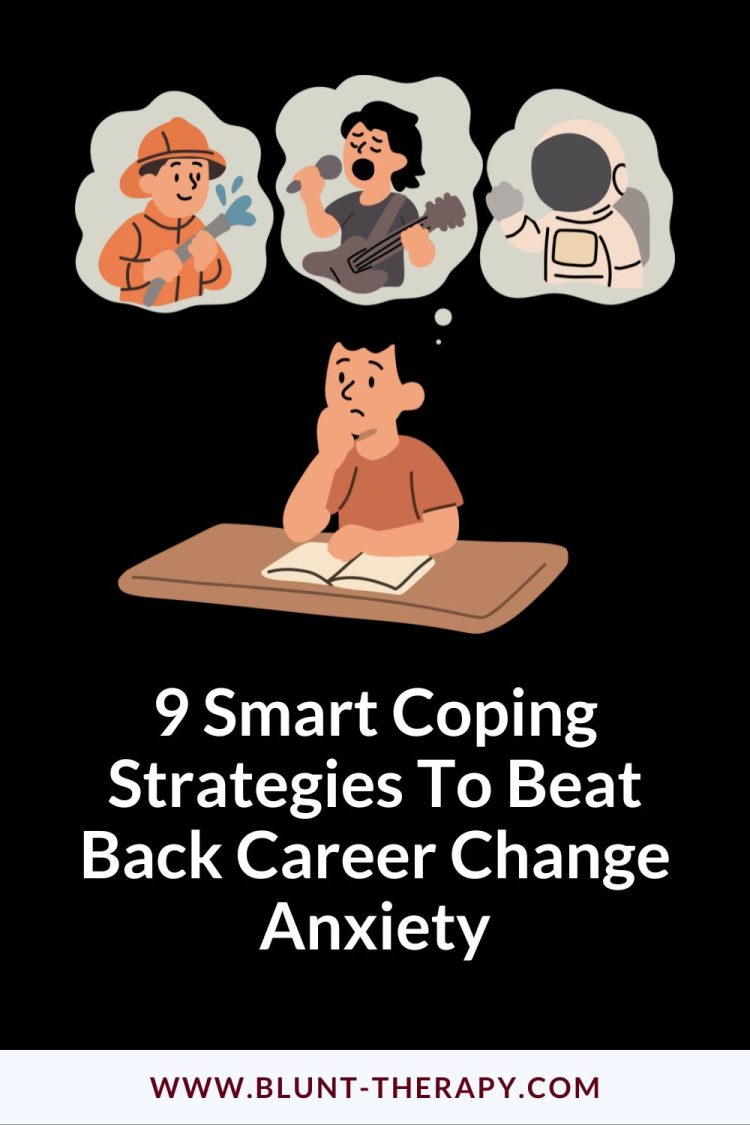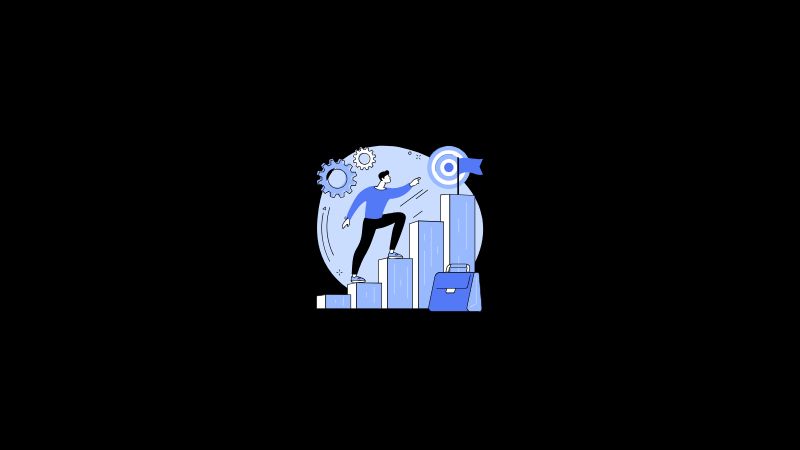Table of Contents
Affiliate link notice: As an affiliate of BetterHelp and other third-party vendors, We will receive compensation if you make a purchase using the links provided on this page. For more information, visit our disclosure page.
Last Updated on October 2, 2025 by Randy Withers
Switching careers is one of those life decisions that feels thrilling and terrifying at the same time. On the surface, there’s the excitement of new possibilities. However, there’s often a swirl of doubts and fears beneath that. It’s essential to know that career change anxiety is completely normal and even expected.
Big shifts push people out of their comfort zones. A steady paycheck, familiar routines and clear expectations suddenly give way to unknown territory. It makes sense that the body and mind respond with nervous energy. The key isn’t to eliminate anxiety, but rather to learn how to manage it so the fear doesn’t overshadow the opportunity.

Understanding Career Change Anxiety
In 2024, more than two-thirds of employees experienced work-related stress that negatively impacted their physical well-being. This stress can cause many people to rethink their career choices, prompting them to switch paths. However, entering a new job or industry often means leaving behind a sense of stability, changing routines and figuring out where to fit in all over again. It’s normal for this kind of change to trigger anxiety.
Much of the worry comes from uncertainty. The mind tends to run through every possible problem, like whether they can pay the bills, whether the new role will be a good fit or whether their current skills will be enough. Even if these fears don’t come true, they can feel very real in the moment and add pressure to what should be an exciting step forward.
The important thing to remember is that career change anxiety is extremely common. Almost 70% of employment-age workers are actively looking for new careers. This means most people exploring change face the same fears and doubts. Understanding that takes away some of the isolation and makes it clear that anxiety isn’t a weakness, but just part of the process.
9 Coping Strategies for Career Anxiety
Career change anxiety is common, but it doesn’t have to take over. These strategies can turn worry into forward movement and make the transition more manageable.
1. Acknowledge the Feelings Instead of Fighting Them
Anxiety thrives when people try to push it down or pretend it’s not there. Naming the emotion can take away some of its power. It reframes anxiety as a normal reaction instead of a personal flaw.
Many career changers find it helpful to journal their thoughts, talk openly with a trusted friend or even say the fear out loud. Once acknowledged, anxiety often feels less like a shadow and more like a companion that people can manage. These anxious feelings will usually ease as the uncertainty becomes more manageable.
2. Break the Transition into Smaller Steps
Looking at a career change as one giant leap can feel overwhelming. Instead, breaking it down into bite-sized steps creates structure and reduces stress. That might mean:
- Updating a resume or LinkedIn profile.
- Taking one online class in the new field.
- Setting up three informational interviews.
- Applying to a handful of jobs each week.
Each small step is proof of progress. This approach shifts the focus from “I have to rebuild my whole life” to “I just need to handle the next step.” It’s far easier to move forward when the path feels manageable.
3. Build a Support System
Anxiety makes people feel isolated, but talking it through changes things. Having a support system — friends, family, mentors or a therapist — can make the weight of uncertainty lighter and boost mental health.
Supportive voices provide encouragement, perspective and sometimes tough love when fear tries to take over. They can remind someone of their strengths when self-doubt creeps in and keep them grounded when the unknown feels too big.
4. Focus on Transferable Skills
One of the most common worries during a career change is feeling like skills won’t transfer. However, in reality, very few people ever start completely from scratch. Skills like communication, problem-solving, leadership and adaptability matter in almost every field.
Listing past achievements and mapping them to a new career can ease fears and highlight readiness. It also boosts confidence in interviews, where anxiety often peaks.
5. Manage Stress With Healthy Routines
Significant changes can take a toll on the body and the mind. That’s why managing stress is vital. Regular movement, whether it’s running, yoga, strength training or daily walks, can regulate anxiety.
Mindfulness practices like meditation or breathing exercises also create space to slow down racing thoughts. Even simple habits such as eating balanced meals, getting enough sleep or carving out time for hobbies support emotional resilience.
6. Keep the Bigger Picture in Mind
Anxiety makes people zoom in on the risks, but stepping away helps reveal the bigger picture. Career changes happen for a reason, like more fulfillment, better work-life balance, financial growth or a chance to follow a passion.
Keeping that “why” in mind acts as an anchor. While it doesn’t erase the fear, it reminds someone that the discomfort is temporary and worth it. As John D. Rockefeller famously stated, “Don’t be afraid to give up the good to go for the great.”
7. Learn to Tolerate Uncertainty
Much of the anxiety around career transitions comes from not knowing what the future will look like. While it’s tempting to wait until everything feels certain, the truth is, no major life change comes with guarantees.
Progress can be made by developing a tolerance for uncertainty and accepting that not every detail can be predicted. Some people practice this by focusing only on what’s within their control while letting go of the rest.
8. Consider Professional Guidance
Working with a career coach or therapist can provide structured guidance for those who feel stuck. Coaches can help with practical steps like resumes and networking, while therapists can address the emotional weight of the transition. Combining the two creates a balanced approach.
9. Celebrate Small Wins Along the Way
Every step forward deserves recognition. Whether it’s sending in an application, landing an interview or gaining clarity about what direction to take, acknowledging progress builds momentum.
Celebrating small wins also keeps motivation alive. Anxiety often feeds on the belief that nothing is moving forward, but tracking accomplishments proves otherwise.
Final Thoughts
Changing careers is never easy, and the anxiety that comes with it can feel overwhelming. Yet this career change anxiety is not a flaw—it’s a natural response to stepping into the unknown. By breaking the process into manageable steps, leaning on your support system, focusing on transferable skills, and caring for your mental health, you transform fear into fuel for growth.
The discomfort of change is temporary, but the rewards of aligning your career with your values can be long-lasting. Instead of viewing anxiety as a barrier, see it as a companion that signals you’re growing beyond your comfort zone. With patience, planning, and self-compassion, you can navigate the uncertainty and build a future that excites and sustains you.






